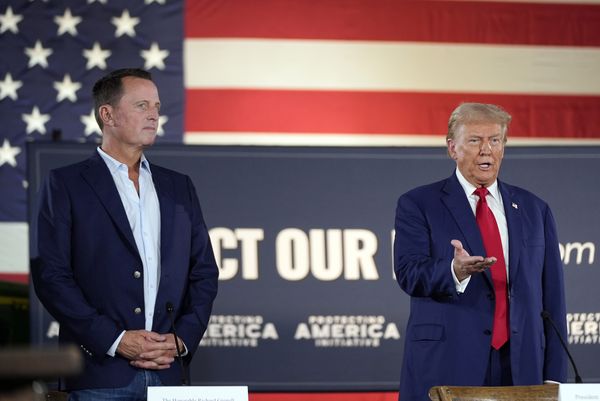
In April, the City of Melbourne launched a funding campaign for a statue of Vida Goldstein, an internationally renowned leader of the Australian suffrage movement. The statue is the first in a series depicting notable women aimed at addressing the gender imbalance in Melbourne’s monuments, with only 15% currently representing women.
But at a time of global reckoning with the politics of commemoration, when monuments of colonisers and racists are being defaced and toppled on this continent and around the world, what does it mean to erect new statues of the likes of Goldstein?
Goldstein, Franklin and more
The Goldstein statue is part of a growing memorialisation of white feminists (or suffragists) active around Federation, when Australia became the first nation in the world to grant white women the dual rights to vote and stand for Parliament. Long relegated to the margins of a male-dominated national story — think bushrangers, Anzacs, lifesavers, cricketers — suffragists and fellow travellers have, over the past decade, risen to newfound prominence in national memory and culture.
Stella Miles Franklin — women’s rights campaigner and the author of My Brilliant Career (1901) — is at the forefront of this commemorative drive. Following Jill Roe’s 2008 biography, the writer’s name was used for the creation of the Stella Prize in 2012, a literary award aimed at challenging the male dominance of the Australian literary landscape. More recently, Franklin’s story has also been revived via a play, a novel, an autobiographical musical and a musical of My Brilliant Career.
Alongside the planned statue, Goldstein was proclaimed “a woman for our time” in a 2020 biography by Jacqueline Kent. She also played a starring role in Clare Wright’s 2012 ABC TV series Utopia Girls: How Women Won the Vote and the 2018 book You Daughters of Freedom — a history of how suffrage campaigners like Goldstein, Muriel Matters and Dora Montefiore made “Australian democracy … the envy of the world”.
To date, the mainstreaming of these feminist pioneers has been widely celebrated as a win for women’s history and feminist politics. In 2023, independent MP Zoe Daniel (who represents the seat of Goldstein, named after Vida) gave an impassioned speech to Parliament in favour of the mooted Goldstein statue, arguing it would give contemporary girls a woman “to literally look up to”.
“Vida Goldstein’s story should be celebrated and passed down like Matthew Flinders’s story, Sir Redmond Barry’s story or Weary Dunlop’s story,” Daniel declared. Similarly, at a 2024 Sorrento Writers Festival panel on “The Life and Legacy of Stella Maria Miles Franklin”, the discussion positioned Franklin as a plucky role model whose example offered feminist inspiration.
Yet there is an elephant in the room: the question of race. Not only did these white women hold racial privilege that was, in Aileen Moreton-Robinson’s terms, “tied to colonisation and the dispossession of Indigenous people”, but they also actively espoused racist views.
Goldstein supported the White Australia policy, endorsed eugenics, fetishised the supposed racial kinship between “Anglo-Saxons” in Australia and the United States, and feared that World War I’s death toll threatened the “British race”. Franklin also supported the White Australia policy and was, according to David Bird’s Nazi Dreamtime: Australian Enthusiasts for Hitler’s Germany (2012), a member of the fascist Australia First Movement led by her close friend P.R. Stephensen.
As the writer and arts editor Alison Croggon wrote in a 2020 tweet, “Beginning to think we don’t talk enough about how Miles Franklin, icon of Australian literature, was an actual fascist.” S. L. Lim, shortlisted for the 2021 Stella Prize, concurred that “Miles Franklin was a fascist. Prizes should not be named after fascists.”
Not everyone agrees with this characterisation. Jill Roe suggests the writer was more a regrettably loyal friend to Stephensen than a fascist ideologue in her own right. But however we understand Franklin’s association with the Australia First Movement, the fact remains that she, Goldstein and their kin explicitly endorsed the white supremacist foundations of the settler state.
Wrestling with complexity
In the 1900s, these views were mainstream in settler Australian culture, including among “progressives” and on the left. The ALP explicitly supported the White Australia policy until 1965. White suffragists were, in this respect, typical creatures of their time, not extremists or outliers. However, Franklin’s alleged fascist sympathies arguably sets her apart.
But typical or not, what do these facts mean for how we remember such women? Australia’s suffragists were significant figures who undeniably merit historical attention, but the challenge is to do so without whitewashing their racial views.
University of Melbourne historian James Keating, author of the award-winning Distant Sisters: Australasian women and the international struggle for the vote (2020), believes it’s imperative to grapple with this issue.
“If the suffragists and their fellow travellers are to be seen as nation-builders, whose bravery and vision offers Australians a founding story bound to the principles of democracy and justice, historians must also reckon with the extent of their complicity in the Commonwealth’s foundational injustices, such as the racialisation of political citizenship in 1902,” Keating says.
“This shouldn’t be considered a performative exercise of our contemporary moral superiority by indicting or casting out certain ‘bad’ feminists, but matters because if we believe that stories about the past are important we need to wrestle with them in all their complexity.”
Historians themselves have not shied away from this wrestling. In their work, the likes of Clare Wright and Jacqueline Kent have been explicit that “Australia’s women threw their Indigenous sisters under the bus“. At the 2022 Sydney Writers’ Festival, Wright deliberately confronted the audience by reading a 1903 Goldstein election speech that contained the phrase “I am in favor of White Australia”.
The difficulty is to retain this complexity while translating histories of white feminists to mass audiences — a tension that plagued the reception of the 2015 British feature film Suffragette. Amid a broader cultural reckoning with Australia’s racist histories, the task is to walk the tightrope of rewriting our popular historical memory without succumbing to the lure of hagiography.
Memorialisation tends to resist this nuance. With a biography or equivalently detailed work, it’s possible (though not inevitable) to tell a multifaceted story; commemorative efforts like prizes and statues are concerned more with celebration than truth-telling and ambivalence.
As Jacinta Koolmatrie, a Adnyamathanha and Ngarrindjeri woman, has written: “statues are not history — they memorialise parts of history, and uncritically reinforce a person’s ideologies without including the full picture”. And Bronwyn Carlson and Terri Farrelly, in Monumental Disruptions: Aboriginal people and colonial commemorations in so-called Australia (2023), argue that the status of specific statues is “less important than the ongoing discussion they inspire about what we choose to remember, and who we are today.”
In this spirit, the new Goldstein statue can hopefully prompt us to sit with hard questions about remembering feminist pioneers without sanitising their politics. To do so is imperative for racial justice in the present but is also an essential part of recognising the full humanity of these historical individuals.
Suffragists were messy people rather than feminist heroines, and we do both us and them a disservice when we reduce them to palatable ciphers. As Keating puts it, the project of reckoning with their racism “is an important part of taking past feminists and their thought seriously, especially now we’ve moved beyond the task of insisting on their presence”.
Do Goldstein’s and Franklins’ views on race tarnish their legacy as feminists? Let us know your thoughts by writing to letters@crikey.com.au. Please include your full name to be considered for publication. We reserve the right to edit for length and clarity.







